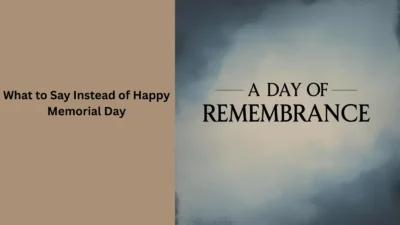Losing someone you love is one of the hardest moments in life. Your heart feels heavy, and words can seem impossible to find. When someone offers their condolences, saying, “I’m sorry for your loss,” it’s a kind gesture, but you might feel stuck on what to say when someone says sorry for your loss.
Should you thank them? Share your feelings? Or just nod? This moment can feel awkward, but responding with grace can deepen connections and honor your loved one’s memory.
In this guide, we’ll explore simple, heartfelt ways to reply, with examples and tips to help you navigate these conversations. Whether you’re grieving or supporting someone who is, these ideas will make those moments feel less overwhelming and more meaningful.
Why Responding Matters
When someone says, “I’m sorry for your loss,” they’re trying to show they care. Your response can help them feel heard and appreciated. A simple reply keeps the conversation flowing and shows you value their support. Ignoring them or staying silent might make them feel awkward or unsure.
Real-life scenario: Imagine a coworker says, “I’m sorry about your dad.” If you don’t respond, they might worry they upset you. A short reply can ease their mind.
Examples of what to say:
- “Thank you, I appreciate that.”
- “It means a lot to hear that.”
What not to say: Avoid brushing it off with, “It’s fine,” as it might seem like you’re dismissing their kindness.
Simple and Heartfelt Responses
Sometimes, less is more. A short, sincere reply works well, especially if you’re feeling emotional or don’t know the person well. These responses show gratitude without requiring you to share too much.
Real-life scenario: At a funeral, a distant relative says, “I’m so sorry for your loss.” You’re overwhelmed but want to acknowledge them.
Examples of what to say:
- “Thank you for being here.”
- “I really appreciate your words.”
What not to say: Don’t feel pressured to say something deep like, “He’s in a better place,” if it doesn’t feel right for you.
Sharing a Memory or Feeling
If you feel comfortable, sharing a brief memory or emotion can make the moment more personal. This invites the other person to connect with you and honors your loved one.
Real-life scenario: A close friend says, “I’m sorry about your grandma.” You want to share something special about her.
Examples of what to say:
- “Thanks, she always made the best cookies.”
- “I appreciate that; I miss her laugh so much.”
What not to say: Avoid oversharing if it feels too raw, like, “I can’t stop crying every night,” unless you’re ready to open up.
When You Don’t Know What to Say
It’s okay to feel stuck or not want to talk. You don’t have to say much to show you’re grateful. A nod or a short phrase can be enough, especially in tough moments.
Real-life scenario: At a memorial, a neighbor says, “Sorry for your loss.” You’re too emotional to speak at length.
Examples of what to say:
- “Thanks, it’s been hard.”
- “I appreciate you saying that.”
What not to say: Don’t feel forced to fake positivity, like, “I’m doing great,” if it’s not true.
Responding in Writing
Sometimes, people send condolence cards or messages. Replying in writing gives you time to think about what to say when someone says sorry for your loss. A thoughtful note shows appreciation and keeps the connection strong.
Real-life scenario: You get a text from a friend: “So sorry for your loss.” You want to reply meaningfully.
Examples of what to say:
- “Thank you for your kind words; it means a lot.”
- “I’m grateful for your support during this time.”
What not to say: Avoid generic replies like, “Thanks,” without acknowledging their effort, as it might feel cold.
Supporting Others in Grief
If you’re on the other side, offering condolences, your words matter too. Knowing what to say when someone says sorry for your loss can help you support others. Be genuine, listen, and avoid clichés that might feel empty.
Real-life scenario: Your friend lost their parent, and you want to offer comfort without sounding rehearsed.
Examples of what to say:
- “I’m here for you; I’m so sorry.”
- “I’m thinking of you during this tough time.”
What not to say: Avoid phrases like, “They’re in a better place,” which might not comfort everyone.
Final Thoughts
Navigating grief is never easy, and finding what to say when someone says sorry for your loss can feel like a small but meaningful step. Whether you choose a simple “thank you,” share a memory, or just nod, your response shows you value the support around you.
These moments remind us how human connection can lighten the load of loss. By responding with kindness and authenticity, you honor your loved one and strengthen your bonds. Keep these tips in mind, and you’ll find the right words when you need them most.




